D.S.G., legend of the Old Bailey who had front row seat for every courtroom drama
Journalist who was well known in Kentish Town dies aged 82
Friday, 30th June 2023 — By Richard Osley
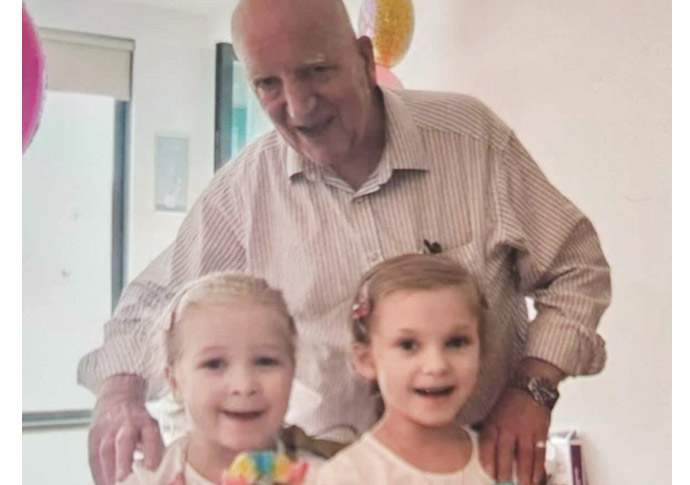
David St George with his granddaughters Ruby and Poppy
DAVID St George – the best-known reporter at the Old Bailey after four decades covering UK history’s biggest and often most gruesome criminal trials – has died at 82.
A walking encyclopedia of crime stories, he was there on the press bench when the likes of Yorkshire Ripper Peter Sutcliffe, Cranley Gardens serial killer Dennis Nilsen and Camden Town’s hacksaw murderer Anthony Hardy were found guilty of their horrific crimes.
He was a master of his trade, rattling off reports down the phone to copy-takers in a flash.
Thousands of those stories ended up in the Camden New Journal and our sister paper the Islington Tribune, but the reports from his freelance agency were published far and wide too, across the national print titles and TV news stations.
Mr St George could be found surrounded in notes and clippings in his office in the basement depths of the courthouse, a throwback to when newspapers invested in making sure the mystique of the legal system was opened up by reporters covering trials on a daily basis.
The details of the cases he covered were often grim and grisly, but away from the Old Bailey he was known throughout Kentish Town as a charming storyteller who went out of his way to help others and was always interested in other people’s life stories.
Although sick from myeloma, a form of blood cancer, he could call the New Journal’s offices with a tip without ever talking about his illness.
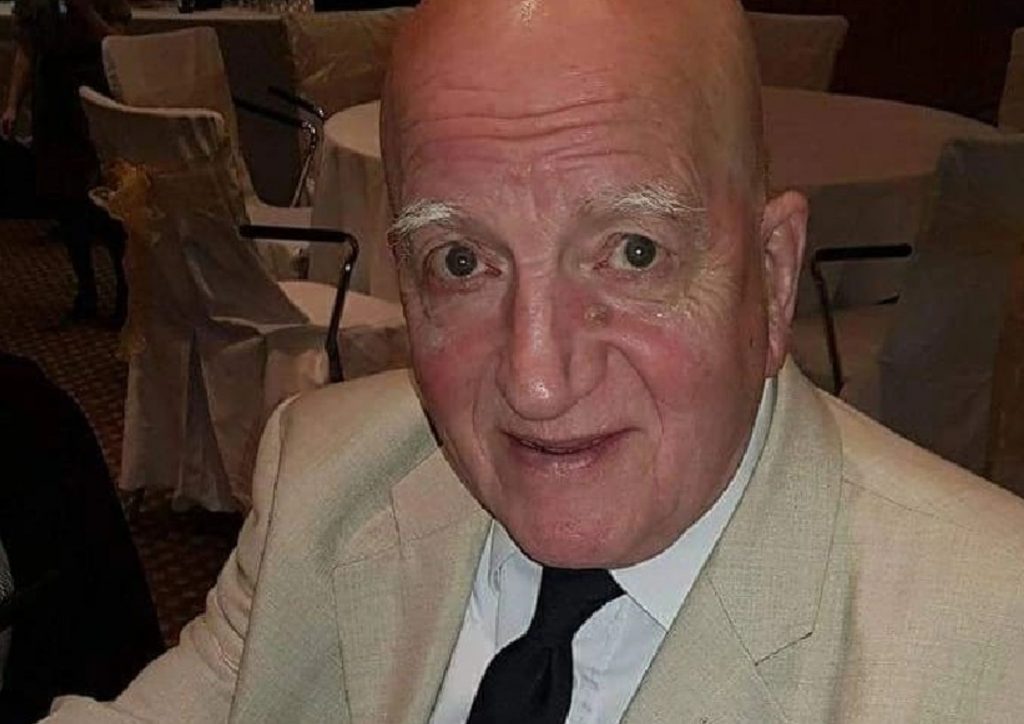
David St George
He had suffered a stroke 12 years ago while in a pub in Kentish Town and still walked home and put himself to bed. In recent weeks his condition had worsened and he passed away in UCLH in the early hours of Saturday. He had been born in a house in Eldon Grove, Hampstead, after his parents moved to England from Argentina – his mother was Argentinian.
He was a pupil at what is now the Rosary Primary School in Haverstock Hill and later St Dominic’s before winning a scholarship to Marylebone School.
As a young man he worked for a newspaper in Derbyshire, which explained why he said he supported Chesterfield if ever asked about football. But he came back to the capital and worked out of an office in King’s Cross Road close to the old Clerkenwell Court, which is now a backpackers hostel.
Here he met his reporter friend Ray Alexander and the pair agreed to set up a freelance news agency which moved to the Old Bailey and became a daily supplier of news from the country’s most famous courthouse.
SEE ALSO HE WHISKED DOWN HIS LUNCHTIME PINT AND SAID ‘WHAT ARE YOU WAITING THERE FOR?’
His daughter Louisa St George said: “Everybody knew my Dad down there. From the court staff to the judges. It’s been overwhelming getting the messages we have had this week, some from people I’ve never even heard of. Even some of the people who were on trial knew him and said they respected him because he was fair. Mad Frankie Fraser said at one time, he’d be the only one he’d give an interview to.”
She added: “Even in the hospital, he was charming everybody. I’d speak to the nurses and they’d say: ‘Oh yes, I know your Dad, he’s been telling us lots of interesting stories’.”
Mr Alexander died in 2017.
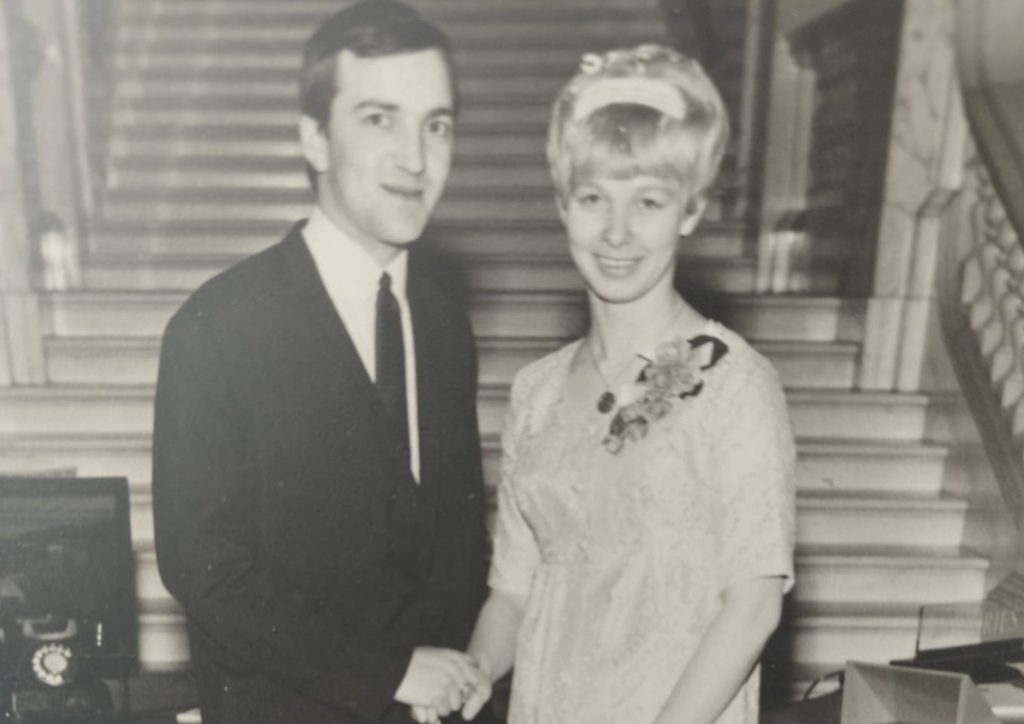
Mr St George marries his wife Sandra at Camden Town Hall
Away from the court you could find Mr St George sinking a pint in the Sir Robert Peel in Queen’s Crescent or Tapping The Admiral in Castle Road – a favourite pub for him also under its old ownership when it was called the Tavern In The Town; or the “TIT” as he called it. Covid rules wrecked plans to celebrate his 80th birthday so his family held a get-together for him there earlier this year.
You might also have found Mr St George in more recent years enjoying lunch with friends at the Salvation Army in Chalk Farm. Others will remember with a smile how he could be seen with a handful of betting slips in the bookies as he tried to find a racing winner each day.
“We went to Ascot every year. He loved it,” Louisa St George said. “When I was younger, I went down to the Bailey to do some work experience and the first thing he asked me to do was to go and put his bets on. They were only ever a few pounds. Later on, sometimes when the court finished early, he’d say ‘let’s jump on a train and make the evening racing at Windsor’ and we’d do that.”
Mr St George always made sure he had money for his family, she said, adding that she had told him that he was the best Dad she could have wished for before he died.
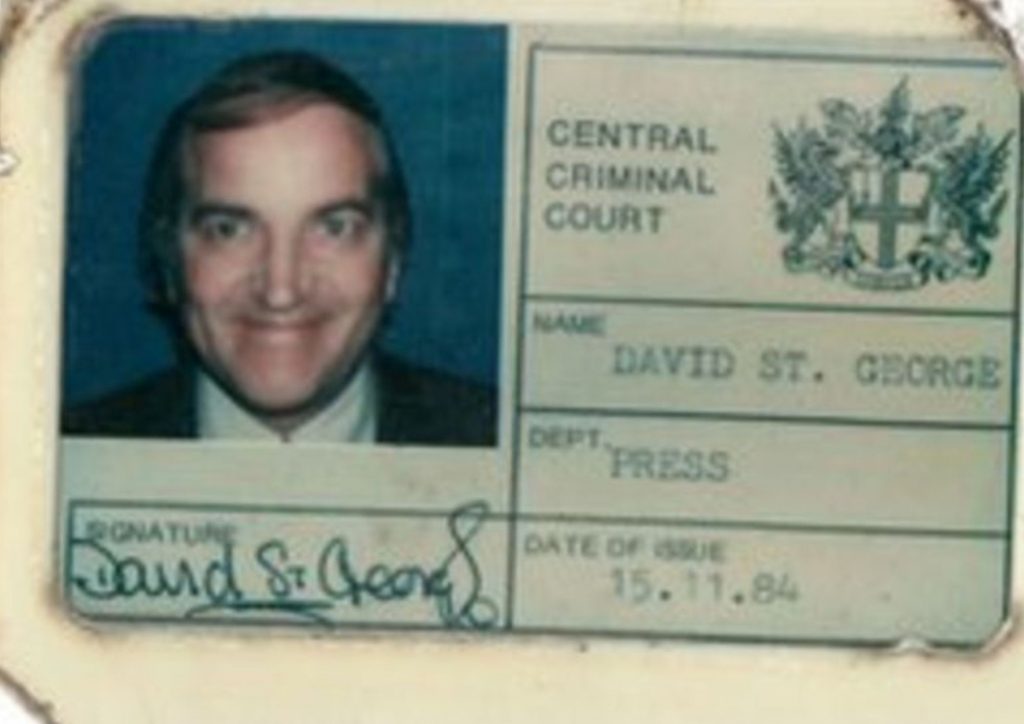
His press pass at the Old Bailey – he first arrived to work at the court in 1969
“He never really got into the new technology and would say his mobile phone had beaten him,” she said. “I think he had one laptop but there are boxes and boxes of files he kept from cases. He had been there for them all. I remember when I was a girl there would be folders with some horrible case files just lying on the kitchen table. “You couldn’t forget what you saw in them.”
In later years, Mr St George, never in jeans and normally in a suit combined with a colourful tie, lamented the changing nature of journalism and why some murder cases had no interest at all from the nationals, blaming an obsession with celebrity gossip over cases where people had died.
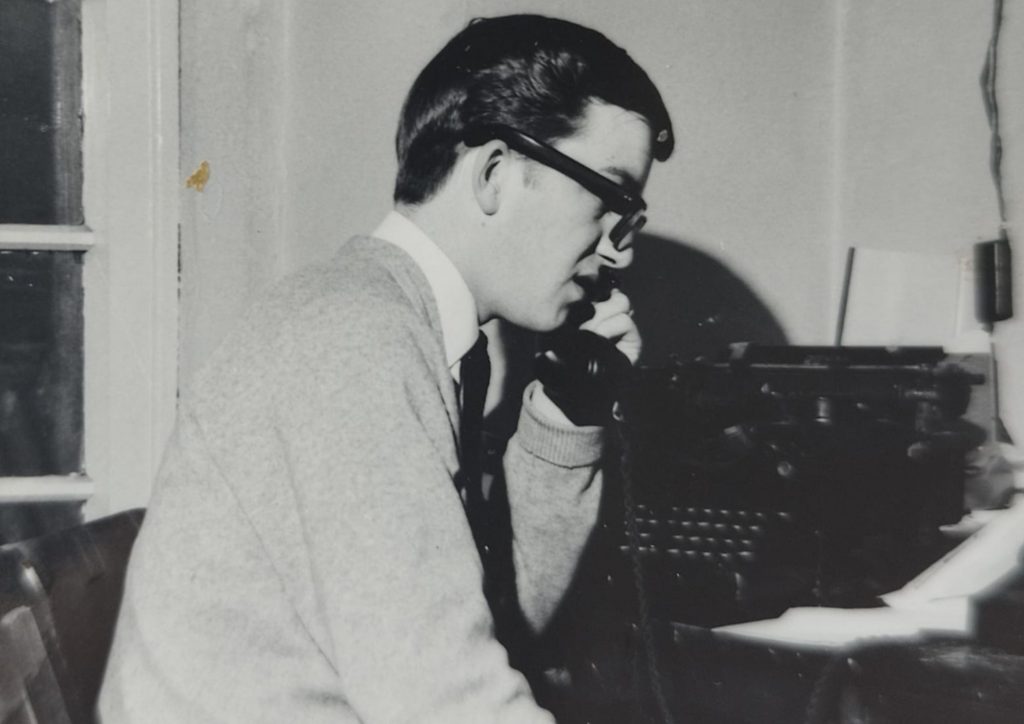
Mr St George’s early days as a reporter and, below, with his daughter Louisa
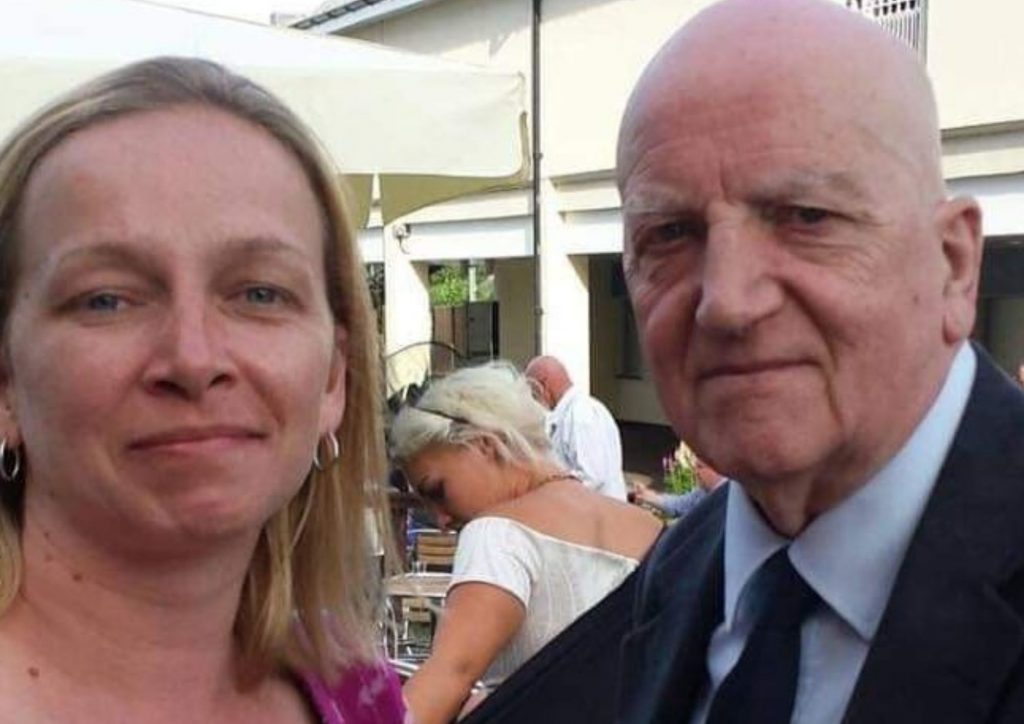
His retirement about ten years ago was a symbolic moment as one of the last dedicated court reporters put away his pen. Another passion was fishing, although Ms St George said her mother, Sandra, “probably caught more than him”.
The couple had married at Camden Town Hall with a reception near the old Clerkenwell court where he had worked They made a home in Powlett Place and had three sons and a daughter, Mark, Miles, Ryan, and Louisa, and four grandchildren. Sadly, Sandra died recently too and Ryan – who had suffered brain damage while in Brixton Prison (see below in a shameful case of neglect – passed away last year.
“I nagged Dad to write a book about everything he had seen at the Bailey and he kept saying ‘all in good time’, but it didn’t happen,” said Louisa St George. “He really had seen it all.” A funeral date has yet to be arranged.
The long, long fight for justice for son Ryan
FOR more than a decade, David St George fought for justice for his son Ryan in a case which exposed a disgraceful lack of care in the prison service and a stubborn refusal for it to apologise after the clear negligence that wrecked a young man’s life.
The scandal dates back to 1997 when Ryan fell out of a top bunk at Brixton prison during an epileptic seizure. His head cracked on the floor of his cell and his body slowly began shutting down.
He had only been sent to jail for a short period for stealing batteries during a time when he just needed some help with drug use but it turned out to be a life sentence.
With a lack of urgency or care, Ryan was starved of oxygen in chaotic scenes which left him with one of the worst cases of brain damage in the country and experts wondered how he was still alive. In a catalogue of negligence, an ambulance had been held up at the prison gates at a time when every second counted, while guards showed little understanding of the emergency nature of the situation.
It took almost to 40 minutes even to call for medical help.
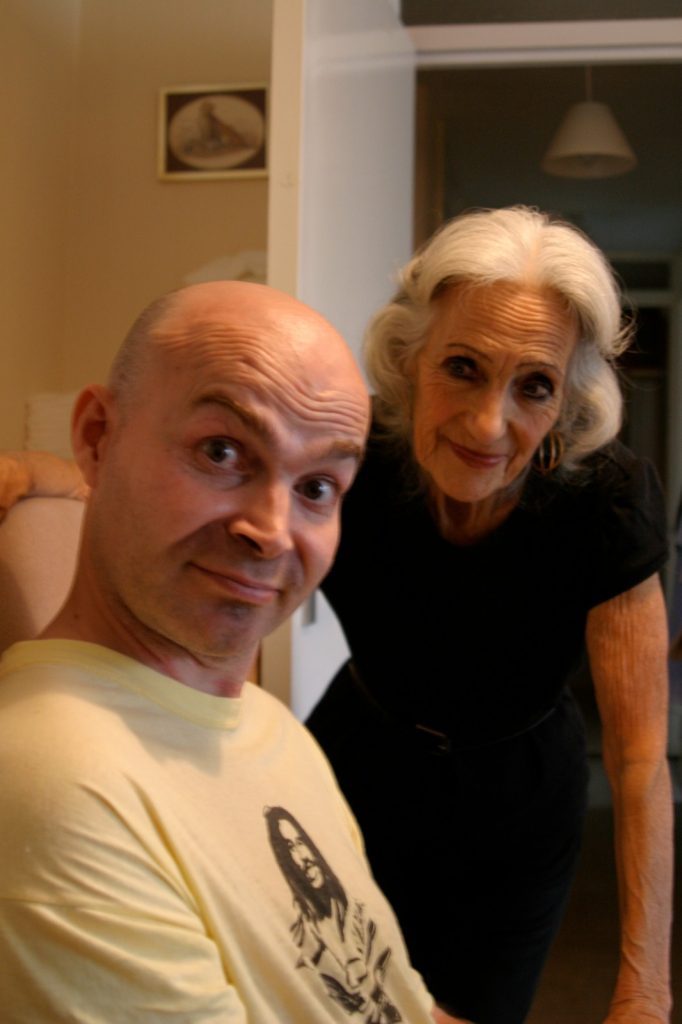
Ryan St George with his aunt, Margaret
Ryan was left no longer able to look after himself, or even talk. His father said his life had essentially ended on the night he was left without urgent help.
While a case was brought against the prison service for compensation, his aunt Margaret, now 92, did much of the day-to-day caring. Modest about what she did for her nephew, others say she should be awarded a King’s honour or a Pride of Britain award for her selfless care into her pensioner years. Even the Home Office’s counsel described her as “quite remarkable” as the legal proceedings went on.
But she would have found it an easier task if it had admitted its wrong-doing earlier, rather than stretch out a legal case for 13 years. It was not until 2010 when David St George finally saw a court order a £4.7 million payment to be made to Ryan, finally covering the cost of an equipped flat in Kentish Town.
“My Dad just kept on going with the case for Ryan – he had to see justice done and he wasn’t going to stop no matter how long it took,” said Louisa St George, when asked about all the days that her father had spent pursing the case. “Even when they said they’d pay something but not much, he said ‘no that’s not right’, we’re fighting on for justice.”
The Camden law firm Hodge, Jones and Allen had worked on the case for compensation.
Ryan died aged 53 last September after choking on food and his father had been asking questions over his care package and the sequence of events that led to his death.
